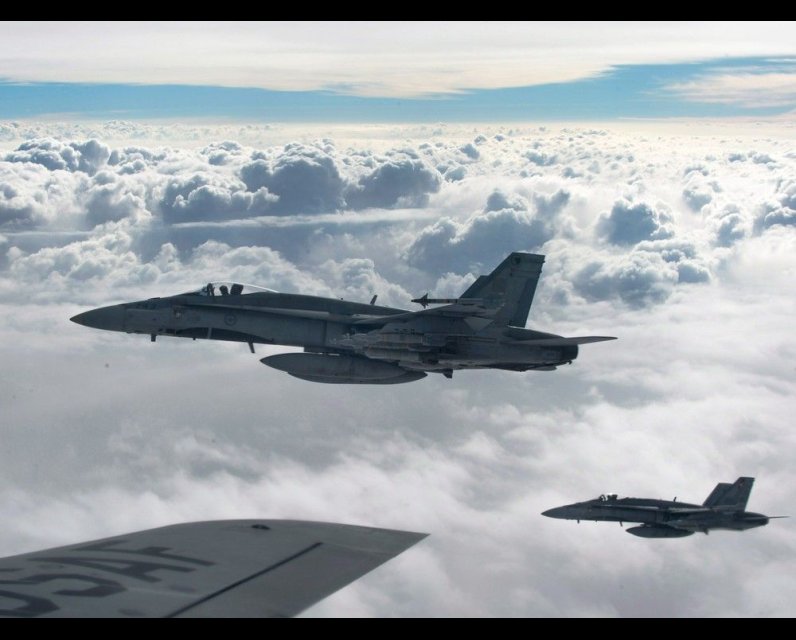Source Feed: National Post
Author: Chris Lambie
Publication Date: April 26, 2025 - 07:00
Liberal and Conservative defence platforms contain 'a lot of commonalities,' says analyst
April 26, 2025

Analysts don’t see a whole lot of difference between the defence platforms of the two major parties vying to govern Canada.
Liberals are promising to boost defence spending over four years by $18 billion to meet the two per cent NATO spending target. The Conservative platform pledges to accomplish the same by adding $17 billion to the defence budget between 2025-2029.
“Really it’s kind of some nuance more so than huge differences; I see a lot of commonalities really,” said David Perry, who heads the Canadian Global Affairs Institute.
“I think the Conservatives are going a little heavier on the Arctic, or at least in a different way. Their Arctic plans feature more permanent presence. At least that’s how I interpret the commitment to build three bases rather than just have the forward operating locations. A base, to me, implies permanency and having troops stationed there on a more full-time basis, whereas the Liberal plan talks about Arctic enhancement and some of the infrastructure … and investments in things like the Arctic over-the-horizon radar, but not as much of a permanent station.”
The Conservatives are also pitching “a kind of bolder and more ambitious plan in terms of what they would do for the commercial infrastructure in support of strategic objectives, both with a base in Churchill as well as their Arctic corridor idea,” Perry said.
Liberals “have more of an emphasis of working with Indigenous communities … as part of their Arctic plan,” he said.
In the “big picture, the Liberal plan talks more about working with Europe,” Perry said. “The Conservative one has got more of a focus on (Australia, New Zealand and the United Kingdom) — the other members of the Five Eyes beyond the United States. So, a bit of a differentiation there in terms of other partners to collaborate with.”
The other “notable difference,” Perry said, is “a bit of a different emphasis on how they’d approach fixing procurement. Liberals are proposing the creation of a single agency, not for the first time. They did that in the 2019 platform as well but didn’t actually implement it. The Conservatives are focused on bringing back a cabinet committee focused on defence procurement and setting up a structure in the Privy Council Office to organize procurement, which for my money, is the smarter proposal — less disruptive and would focus on some of the key coordination issues that aren’t necessarily going to be fixed just by creating a separate agency. But I think in both cases you could say that there’s some commonality of looking to have more central focus to procurement.”
While both parties are promising to bolster defence spending, Perry does not expect much to change during the next mandate, no matter who takes the country’s reins.
“I think we need to be prepared to be underwhelmed by how much can change in just the next four years, because the current defence procurement cycle, as an example, runs about 15 years from projects starting to being completed.”
No matter who wins, even if they’re “astonishingly effective and they reduce the procurement time to one third of what it currently is, well that’s basically like an entire new mandate,” Perry said.
Canada currently spends 1.37 per cent of its gross domestic product on defence — about $41 billion annually.
“Our investments will be spent wisely and effectively to put Canada on track to exceed our NATO defence spending target before 2030,” according to the Liberal platform.
Liberal Leader Mark Carney is promising his government will give pay raises to the military, “rapidly (increase) the stock of high-quality housing on bases across the country and (ensure) access to primary child care and health care — including mental health supports — for serving members and their families.”
The Liberals are pledging to modernize the military’s recruitment process “by streamlining security clearances and applying online, so that more applicants can get trained, faster.”
The Liberals also plan to “integrate the Canadian Coast Guard into our NATO defence capabilities” to “exceed our commitment to spend at least two per cent of GDP on defence.”
That makes sense, according to Ken Hansen, a military analyst and former navy commander.
“The coast guard has been very defensive about this; their leadership and their people are not thrilled about it,” Hansen said. “But I think it’s essential. There has to be some kind of common working arrangement with the coast guard and the military.”
Pierre Poilievre’s Conservatives are promising to fix the recruiting “crisis” by increasing the reserve force to 30,000 and the regular force to 71,500 within 18 months.
Conservatives plan to “double the size of the 1st Patrol Group of the Canadian Rangers from 2,000 to 4,000,” and acquire two new heavy icebreakers for the navy.
The Conservative platform also includes promises to “rapidly build 6,000 new homes on Canadian Forces bases,” as well as acquire new submarines and tactical helicopters.
While both the Conservatives and Liberals are both promising defence spending will reach two per cent of GDP, that target could soon be shifting upward, said Richard Shimooka, senior fellow with the MacDonald-Laurier Institute.
“We have a NATO summit coming up and the talk is that the floor is going to go to three per cent,” Shimooka said.
“There’s a big push, not just by the Trump administration, but by European allies to actually spend more on defence.”
The military has always been a pricey budget item for Canada, said Hansen. But he cautions promises made on the hustings don’t always pan out for the Forces, no matter who’s in power.
“When the pinch is on for money due to things like COVID or trade wars, then that’s where they’ll squeeze to get some money out so they can smear it around somewhere else,” Hansen said.
Our website is the place for the latest breaking news, exclusive scoops, longreads and provocative commentary. Please bookmark nationalpost.com and sign up for our daily newsletter, Posted, here.
Gov. Gen. says the pontiff's apology for widespread abuses in the residential school system was a significant step in addressing historical injustices
April 26, 2025 - 13:21 | Globalnews Digital | Global News - Canada
NDP Leader Jagmeet Singh says he considered stepping down after being told about a credible threat to his life in December, 2023.Singh says the RCMP warned him about the threat and put him and his family under heavy police protection in late 2023 and early 2024.
April 26, 2025 - 12:49 | David Baxter | The Globe and Mail
It was unexpected and the reason can’t be shared yet. Just days after a jury began hearing the sexual assault case against five hockey players in a London, Ont., courthouse, the judge ordered a mistrial. The players have pleaded not guilty.The proceedings restarted immediately on Friday with the selection of a new jury. To help understand the legal concepts, here are the insights of two veteran criminal lawyers and a former Crown attorney.
April 26, 2025 - 11:11 | Ha Tu Thanh | The Globe and Mail


Comments
Be the first to comment